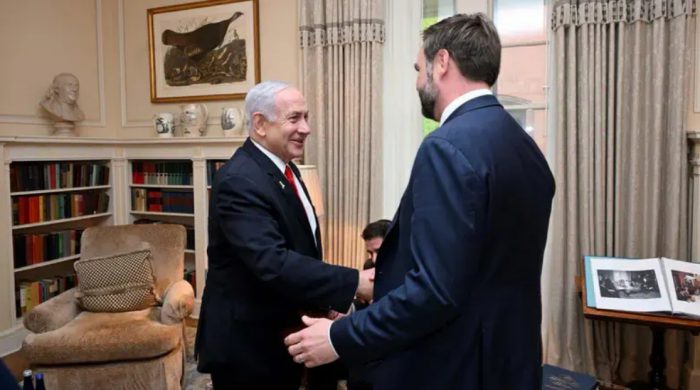As Hamas violates the Trump-brokered Gaza ceasefire, Washington races to prevent Israel from abandoning the fragile peace and resuming full-scale war.
The White House is scrambling to preserve the fragile Gaza peace deal crafted by President Donald Trump, amid rising tensions and deepening doubts in Jerusalem, where Prime Minister Benjamin Netanyahu faces mounting pressure to abandon the agreement following Hamas’s blatant violations.
According to The New York Times, Vice President JD Vance is flying to Israel to join Trump’s senior peace team — envoy Steve Witkoff and adviser Jared Kushner — both key architects of the truce. Their mission: to calm the situation and prevent Netanyahu from unleashing a renewed, all-out offensive to crush Hamas in Gaza.
President Trump, however, made his position unmistakably clear: if Hamas continues to attack, Israel will have full U.S. backing to “eradicate” the terror organization.
“We made a deal with Hamas — they’re going to behave,” Trump said Monday. “And if they’re not, we’re going to eradicate them.”
The ceasefire was violently shaken on Sunday when Hamas terrorists fired an anti-tank missile at an IDF vehicle, killing two Israeli soldiers and wounding another. The attack underscored how fragile and one-sided the truce has become, with Israel still adhering to restraint while its enemies test the limits.
While both sides accused each other of violating the truce, only Hamas has targeted soldiers during declared calm — a move many Israeli officials call an “intolerable provocation.”
Trump downplayed the incident as a “rebellion” by rogue Hamas factions, insisting that the group’s leadership remains interested in talks. “Some Hamas fighters got very rambunctious,” he remarked, though he warned that continued aggression would legitimize Israel’s right to strike with full force.
Meanwhile, diplomatic efforts continue to hammer out unresolved clauses of the agreement — including the formation of a regional stabilization force led by Egypt and a long-term demilitarization plan for Hamas. Yet, with no timeline or enforcement guarantees, many in Israel fear these measures will again become a revolving door of appeasement, leaving the Jewish state to shoulder the burden of defending peace alone.
For Israel, the choice is narrowing between a temporary, dangerous calm or decisive action to ensure Hamas never rises again. And for Washington, the question remains whether its peace plan empowers Israel’s defense — or merely prolongs a cycle of terror in disguise.





